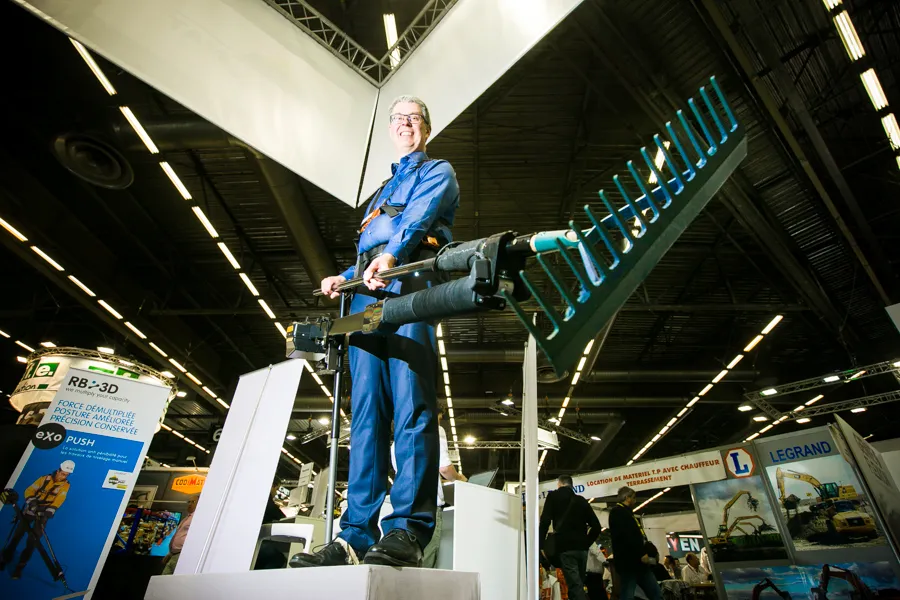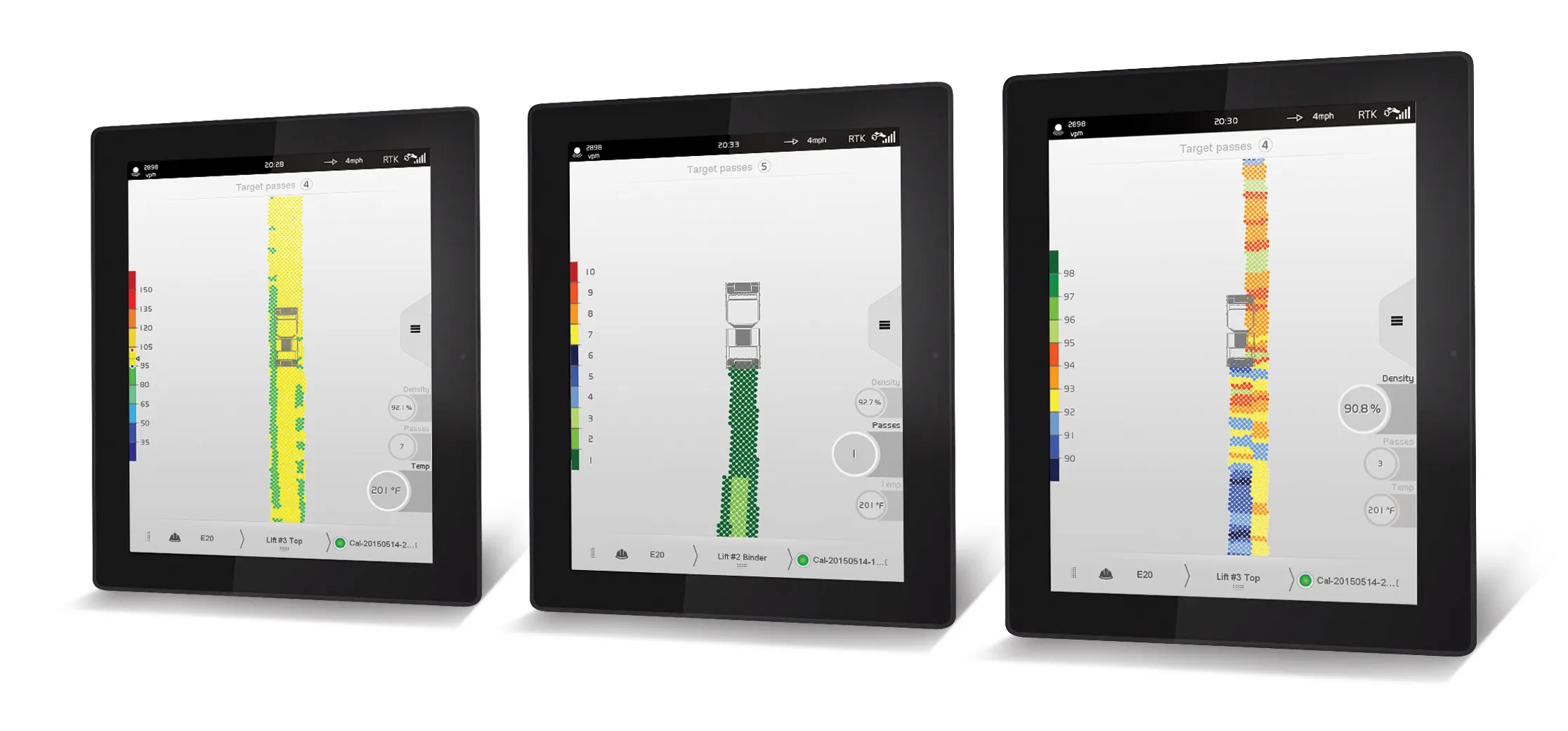
“ExoPush amplifies the effort that the operator puts in,” said Olivier Baudet, business manager for RB3D. “And with tasks such as asphalt raking, it removes a lot of physical effort from the operator, reducing fatigue. But more importantly, it avoids the need for the operator to bend over to put their back into the task.”
As an asphalt rake, ExoPush is worn by the operator on a shoulder harness, and is complemented by a height-adjustable telescopic stabiliser attached at the operator’s waist and foot. Any push and pull forces from the operator are felt by the ExoPush’s sensors, and an electric actuator applies linear motion to boost the operator’s inputs.
Priced at €25,000, the outfit weighs 8kg including battery pack, and can operate for up to four hours on a charge. Recharging is a three-hour process, said Baudet - adding that the exoskeletal system offers a level of finesse and speed that directly matches the operator’s input.
ExoPush has been developed in collaboration with French road construction company Colas, as a solution to health and safety concerns for operators involved in manually levelling asphalt surfaces and aggregates, using traditional rakes. Convinced of the system’s merits, Colas has ordered 30 ExoPush units for its asphalt operators.









